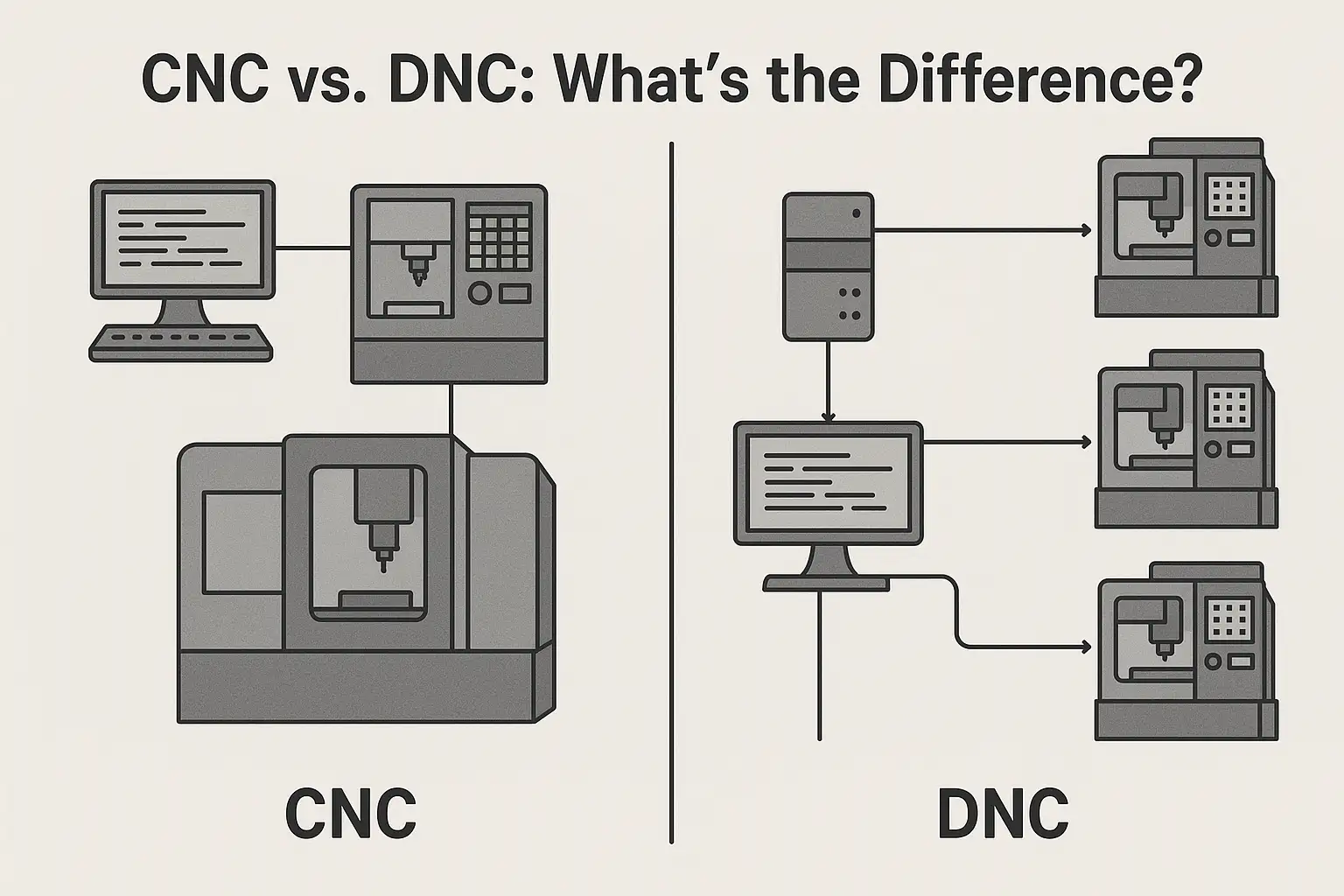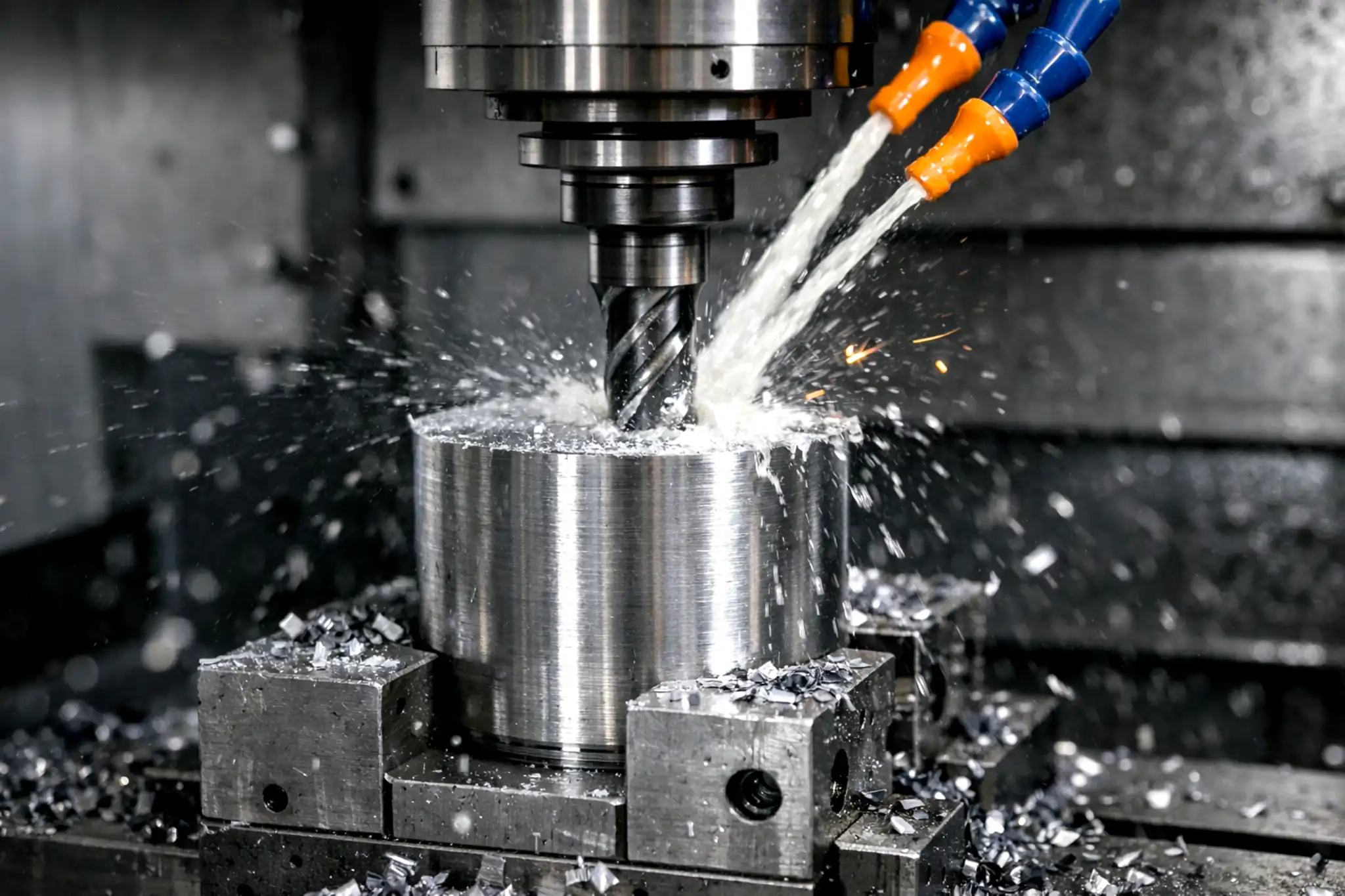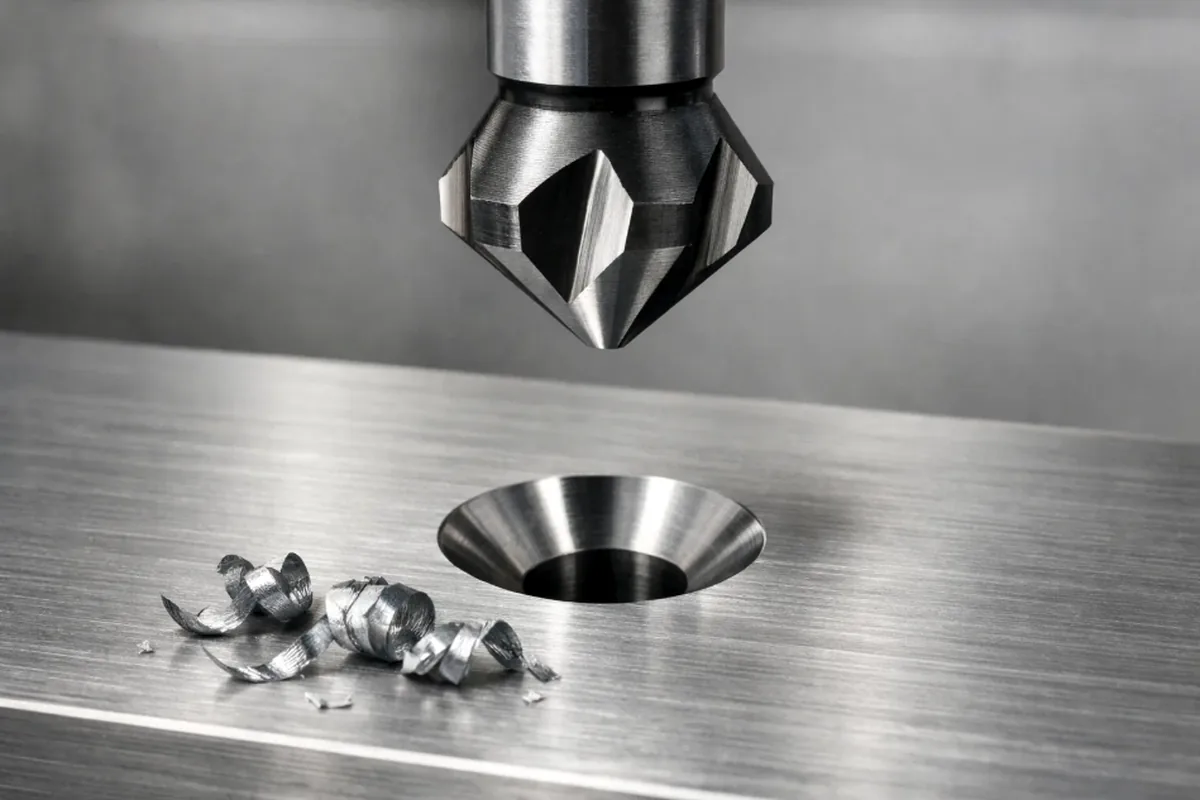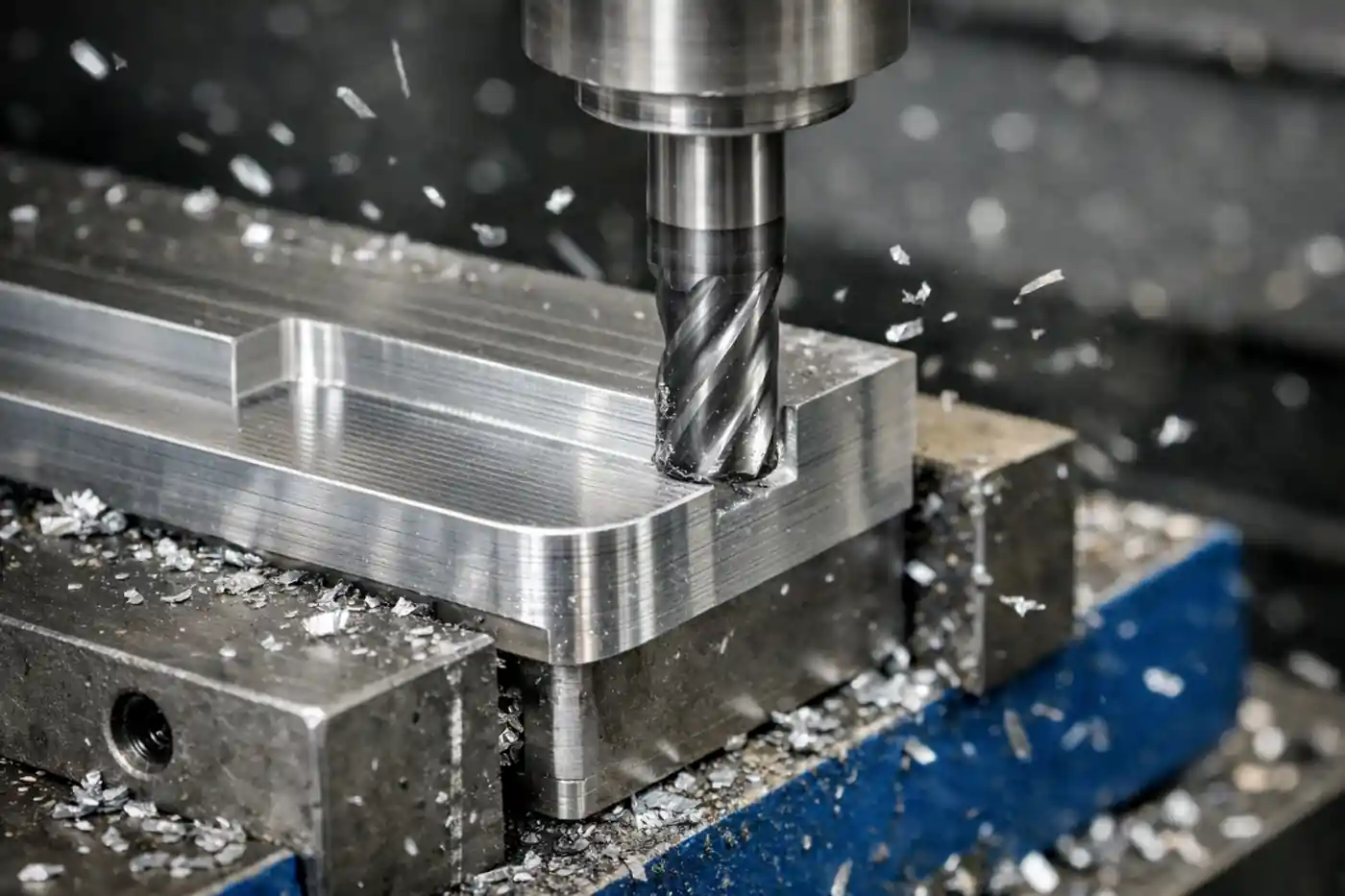In the fast-paced world of manufacturing, every second and every detail matters. But how do factories ensure precision and control across a fleet of machines? The answer often comes down to two key terms: CNC and DNC. While they sound similar and both involve numerical control, they represent fundamentally different approaches to managing the manufacturing process.
Understanding the distinction between CNC and DNC is crucial, whether you are a business owner looking to optimize your production line, or an engineer seeking to understand the technology behind your work. This guide will demystify CNC and DNC, explain their core differences, and help you understand which system is the right fit for your business needs.
What is CNC (Computer Numerical Control)?
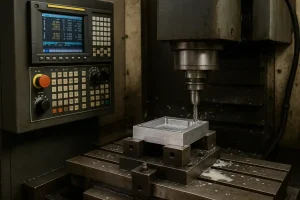
CNC, or Computer Numerical Control, is a self-contained, computerized control system for a single machine. Think of it as a machine that has its own brain and memory. The computer is physically integrated into the machine itself, giving it the power to execute a program independently.
How it Works: An operator loads a machining program (typically a G-code file) directly into the machine’s internal memory, either via a USB drive or a network cable. Once the program is loaded, the machine operates autonomously, executing the commands to produce the part. It does not require a continuous network connection to complete the job.
Pros:
- Independence: Since the machine operates on its own, it is not reliant on a central network.
- Simplicity: CNC is straightforward to set up and operate for individual tasks or machines.
Cons:
- Limited Storage: The internal memory of a CNC machine is finite, limiting the size of complex programs.
- Management Challenges: Managing program versions and data across multiple standalone machines can be time-consuming.
What is DNC (Distributed Numerical Control)?
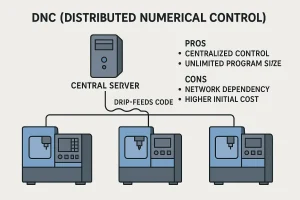
DNC, or Distributed Numerical Control, is a networked system where multiple machines are controlled by a central computer or server. It’s a solution designed for efficiency and automation on a larger scale.
How it Works: Instead of each machine having its own program library, all machining programs are stored on a powerful central server. The server “drip-feeds” the code to the machine in real-time.
Pros:
- Centralized Control: All programs are managed in one central location, allowing for real-time data tracking and factory-wide automation.
- Unlimited Program Size: Since the program is streamed, there are no limitations on program size.
- Enhanced Efficiency: DNC enables lights-out manufacturing and remote monitoring.
Cons:
- Network Dependency: A stable network is essential for the system to function.
- Higher Initial Cost: DNC requires investment in a central server and network infrastructure.
CNC vs. DNC: A Side-by-Side Comparison
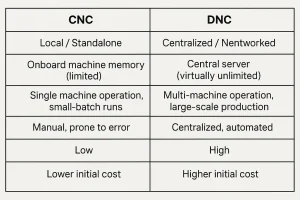
| Feature | CNC (Computer Numerical Control) | DNC (Distributed Numerical Control) |
| Control Mode | Local / Standalone | Centralized / Networked |
| Program Storage | Onboard machine memory (limited) | Central server (virtually unlimited) |
| Application | Single machine operation, small-batch runs | Multi-machine operation, large-scale production |
| Data Management | Manual, prone to error | Centralized, automated |
| Scalability | Low | High |
| Cost | Lower initial cost | Higher initial cost |
CNC Application Scenarios
Due to its flexibility and independence, the CNC system is highly suitable for the following types of applications:
-
Prototyping and R&D: In the early stages of product development, engineers need to quickly create functional prototypes for testing and verification. A CNC machine can rapidly import design files and begin machining, with no need for complex network configurations.
-
High-Mix, Low-Volume Production: For workshops that need to frequently change product models or materials, the advantages of local programming and operation with a CNC system become apparent. For instance, a mold-making shop might need to produce small but highly precise molds for different clients daily, and CNC is perfectly suited for this demand.
-
Education and Training: Many technical schools and vocational training centers use standalone CNC machines to teach students numerical control programming and operation skills, providing a practical platform for future manufacturing talent.
DNC Application Scenarios
The DNC system is primarily designed for large-scale, high-efficiency, and automated production. Its value is maximized in the following scenarios:
-
Automotive Parts Manufacturing: On an automotive production line, a large volume of identical parts must be manufactured with high precision. A DNC system can centrally manage the programs for all machines, ensuring consistency across all products and maximizing production efficiency through real-time monitoring.
-
Aerospace Components Machining: Aerospace parts (such as wings or turbine blades) often have extremely complex geometries, and their machining program files can be very large, exceeding the memory capacity of a single CNC machine. The “drip-feed” function of DNC perfectly solves this problem, ensuring a smooth machining process.
-
“Smart Factory” or “Lights-Out Manufacturing”: In a highly automated modern factory, DNC is the cornerstone of unattended production. The central server can automatically distribute tasks to machines based on the production schedule and make real-time adjustments via data feedback, enabling truly “intelligent” management.
Which System is Right for Your Business?
The choice between CNC and DNC is a strategic business decision based on your production volume, budget, and long-term goals.
- Choose CNC if… you operate a small-to-medium-sized workshop, a job shop with a high diversity of projects, or if you need to run a handful of machines independently.
- Choose DNC if… your goal is to build a high-volume, automated manufacturing facility. DNC is the backbone of a smart factory.
At Minghe Machining, our professional team has a deep understanding of both CNC and DNC systems. We can help you navigate these technologies to provide the highest quality and most efficient manufacturing solutions. Whether your project requires the flexibility of a standalone CNC machine or the high-volume capabilities of a networked system, we have the expertise to meet your needs.
Contact us today to discuss your project and discover how our advanced machining capabilities can help you achieve your goals.
